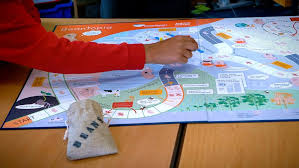Board games have long been a cherished pastime for many, but recent research from the University of Plymouth reveals a significant trend: board gaming is particularly popular among individuals with autism. This new research not only supports this observation but also uncovers the reasons behind the phenomenon.
The research, published in the American Journal of Play and the Journal of Autism and Developmental Disorders, involved five comprehensive studies. These studies collectively demonstrated that individuals with autism are overrepresented in the board gaming community compared to the general population. Modern board games, such as Dixit and Werewolf, offer a structured social outlet that appeals to many autistic individuals by reducing the pressures of social interactions and providing an escape from daily uncertainties.
Understanding the Research
The first study surveyed 1,600 board gamers worldwide, revealing that approximately 7% of them were diagnosed with autism, a stark contrast to the 1% prevalence in the general population. Additionally, 30% of respondents exhibited high levels of autistic traits based on the Autism Spectrum Quotient (AQ) questionnaire.
The second study conducted 13 in-depth interviews with hobbyist board gamers who had been medically diagnosed with autism. Participants described board games as both ‘comforting’ and ‘stimulating,’ providing an alternative means of social communication and allowing them to engage with their passions.
In the third study, 28 autistic individuals unfamiliar with board games were introduced to the hobby in small groups. Subsequent focus group discussions revealed that board games were perceived as challenging yet growth-promoting and served as an alternative method for building social relationships.
The fourth and fifth studies involved two-year-long interventions with weekly board game sessions. One group comprised autistic adolescents at a special educational needs (SEN) school, and the other involved autistic adults, many of whom also had intellectual disabilities. These interventions fostered community, independence, and skill development among participants.
Expert Insights
Dr. Liam Cross and Dr. Gray Atherton from the University of Plymouth’s School of Psychology led the research. Dr. Atherton emphasized the importance of understanding why board games are a valuable hobby for many individuals with autism. “The findings as a whole aren’t a shock, but what is surprising is the lack of evidence underpinning board game use as an intervention for people with autism,” she said. “Hearing the feedback from the study participants was really motivating to try and push this forward in different settings.”
Dr. Cross highlighted the significance of modern board gaming. “When we talk about hobbyist board gaming, we mean don’t just mean a family game of Monopoly every now and then. We mean the kind of newer games that individuals play frequently at places like board game cafés,” he explained. The researchers are also working on adapting existing games to be more accessible and enjoyable for people with autism.
The insights from this research could inform the development of future interventions aimed at improving the wellbeing of individuals with autism. As Dr. Atherton noted, “Everyone with autism is unique, and we want to ensure any interventions could be adapted as needed for those who might benefit.”
This groundbreaking research not only underscores the therapeutic potential of board games but also opens the door to more targeted and effective interventions for the autism community.












